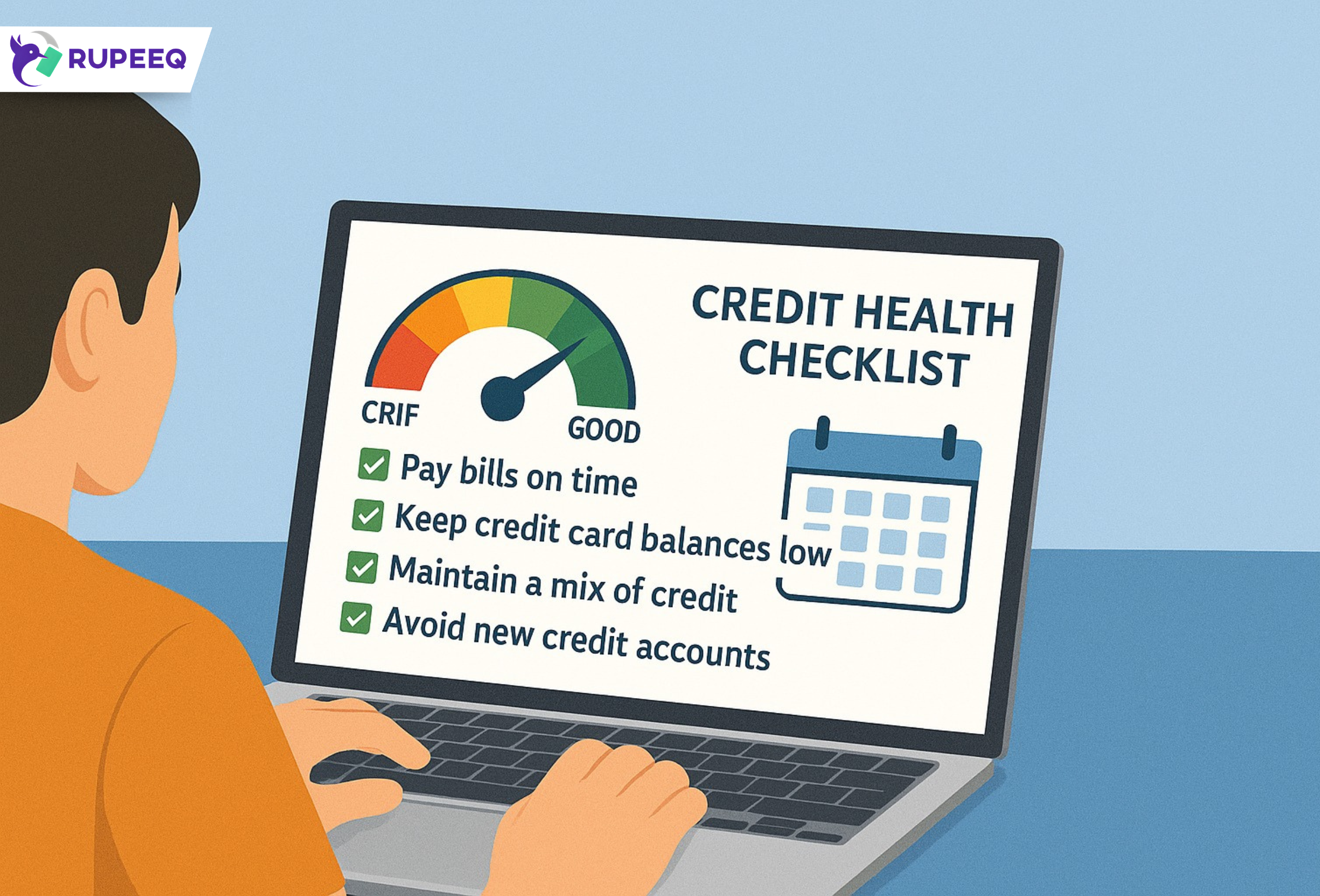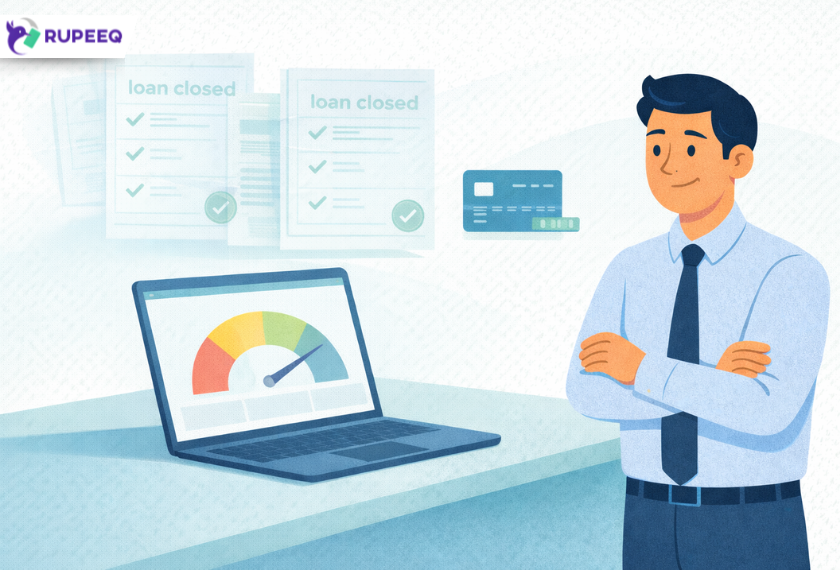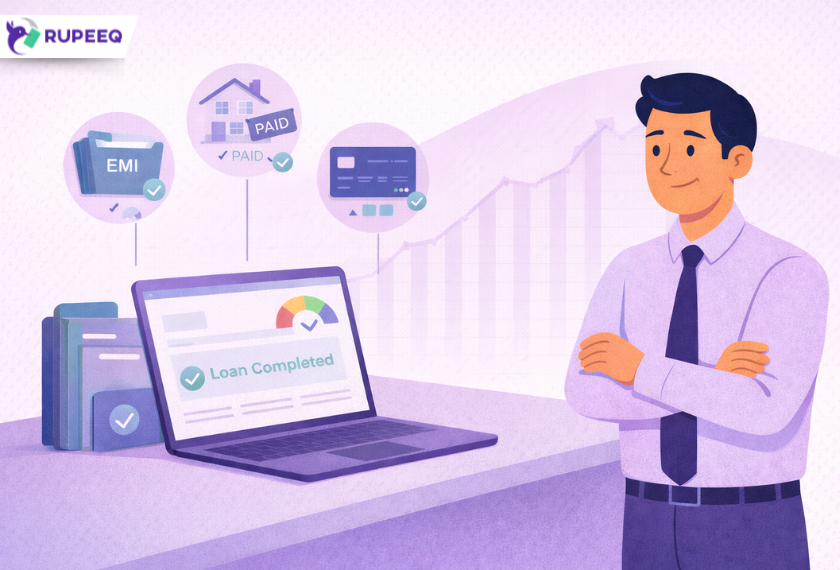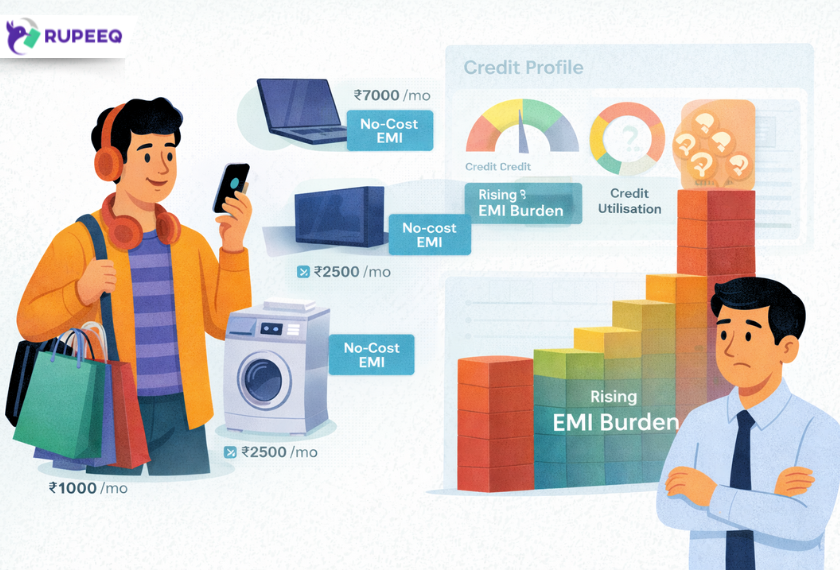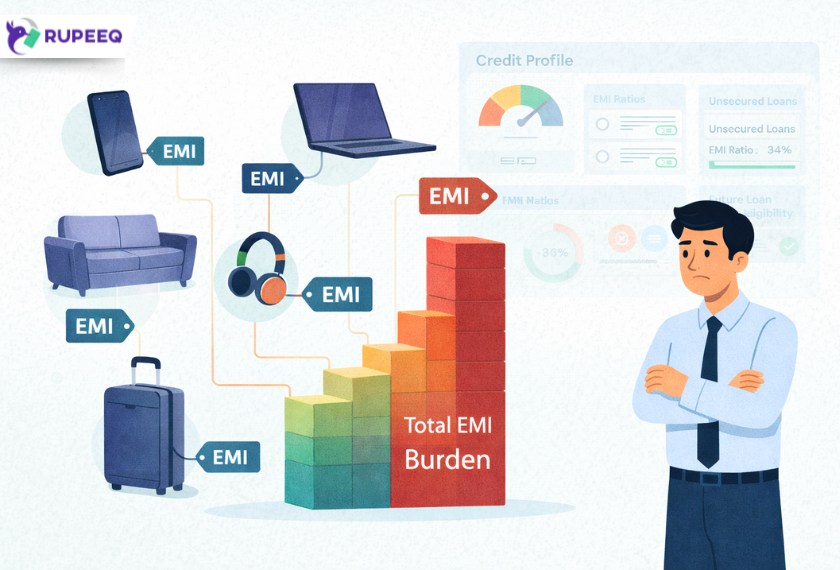Your CRIF credit score isn’t just a number—it’s a reflection of your credit behavior and financial discipline. Whether you’re applying for a home loan, a car loan, or a credit card, your CRIF score plays a critical role in determining whether you get approved and what interest rate you’re offered.
A healthy score (typically 750 and above) signals to lenders that you are a responsible borrower. On the other hand, a lower score could result in rejected applications or higher interest rates—even if you meet all other eligibility criteria.
So how do you maintain a good CRIF score consistently? This blog dives into essential, actionable tips to help you stay credit-healthy and avoid common pitfalls.
Why Maintaining a Good CRIF Score Matters
A strong CRIF score:
- Improves your chances of loan approval
- Gets you better interest rates
- Helps you qualify for higher loan amounts
- Enhances your negotiating power with banks and NBFCs
- Can even influence decisions like rental approvals or job offers in finance-related roles
RupeeQ Tip: Use RupeeQ ACE to monitor your CRIF credit score regularly. It provides a free, detailed breakdown of your score along with personalized improvement suggestions.
Read this guide : How to Improve Your Credit Score
Key Tips to Maintain a Healthy CRIF Credit Score
1. Always Pay EMIs and Credit Card Bills on Time
Why it matters:
Payment history accounts for a major portion of your credit score. Even a single missed EMI can reduce your score by 50–100 points.
How to do it:
- Set auto-debit instructions for EMIs and card payments.
- Pay at least the minimum due amount on credit cards to avoid late penalties.
Example:
Raj forgot to pay his credit card bill of ₹3,000 by the due date. Though the amount was small, his CRIF score dropped by 60 points. Consistent timely payments afterward helped him recover in 6 months.
2. Maintain a Low Credit Utilization Ratio
Why it matters:
Using a large portion of your credit limit often signals financial stress, even if you repay on time.
Best practice:
Keep your credit utilization below 30% of your total credit limit.
Example:
If your credit card limit is ₹1,00,000, try to spend less than ₹30,000 per month.
RupeeQ Tip: If you regularly hit your card limit, ask your bank for a higher credit limit—but don’t increase your spending.
3. Don’t Apply for Too Many Loans or Cards at Once
Why it matters:
Each loan or credit card application results in a “hard inquiry” on your credit report. Too many hard inquiries in a short span can negatively affect your score.
What to do:
- Space out credit applications by 6–12 months.
- Use RupeeQ to check pre-approved loan and card offers without affecting your CRIF score.
4. Monitor Your CRIF Credit Report Regularly
Why it matters:
Errors like incorrect personal information, wrong loan status, or payments not updated can bring down your score unknowingly.
What to do:
- Check your credit report every 3–6 months.
- Dispute inaccuracies immediately.
RupeeQ Tip: Log in to your RupeeQ account and go to My Report to raise a dispute directly if you spot any errors.
5. Maintain a Healthy Credit Mix
Why it matters:
Lenders prefer borrowers with a balanced mix of secured loans (home, auto) and unsecured loans (personal loans, credit cards). Too many unsecured loans may be seen as risky.
What to do:
- Don’t rely solely on personal loans or credit cards.
- Build a good mix of credit over time.
6. Avoid Closing Old Credit Accounts
Why it matters:
The length of your credit history also influences your CRIF score. Older accounts show long-standing creditworthiness.
Best practice:
Keep your oldest credit card active, even if you use it occasionally, to maintain a longer credit history.
7. Don’t Settle Loans Unless Absolutely Necessary
Why it matters:
Settling a loan (paying a lesser amount to close it) reflects negatively on your credit report and affects your score for years.
What to do:
- Aim to close loans fully by repaying the entire outstanding amount.
- Negotiate payment terms instead of settling.
Example:
Nisha settled a loan for ₹30,000 instead of paying ₹50,000. Her score remained under 650 for 2 years, even though she made all payments afterward.
8. Check Your DPD (Days Past Due) Entries
Why it matters:
Even if your account is active and paid regularly, a late entry marked in DPD can impact your CRIF score.
How to fix it:
Check your CRIF credit report via RupeeQ and ensure there are no incorrect DPD entries. Raise a dispute if required.
9. Manage Joint Accounts Carefully
Why it matters:
If you’re a co-applicant on a loan, any missed payments by the primary borrower will affect your score too.
What to do:
- Monitor joint loan accounts actively.
- Set clear responsibilities and repayment rules with co-borrowers.
Summary Table: Dos and Don’ts for Healthy CRIF Score
| Dos | Don’ts |
| Pay EMIs on time | Miss or delay payments |
| Keep credit usage < 30% | Max out your credit cards |
| Review credit reports regularly | Ignore errors in your credit report |
| Maintain a good mix of loans | Take too many unsecured loans |
| Use old credit cards to build history | Close old accounts abruptly |
| Raise disputes on incorrect entries | Assume your report is always accurate |
| Space out credit applications | Apply for multiple loans at once |
Read this guide : CRIF vs CIBIL: What's the Difference?
Conclusion
Maintaining a healthy CRIF credit score is not a one-time task—it requires consistent financial discipline and active credit monitoring. By keeping your repayments timely, your credit usage low, and your report error-free, you not only boost your score but also secure better loan terms when you need them most.
With RupeeQ, staying credit-healthy becomes easier than ever. From checking your CRIF score for free to tracking key indicators with RupeeQ ACE, you get the tools and insights to stay one step ahead of lenders.
Frequently Asked Questions
How often should I check my CRIF credit score?
Every 3–6 months or before applying for any loan or credit card.
Can closing my credit card lower my CRIF score?
Yes, especially if it’s your oldest card or reduces your overall credit limit.
How long does it take to build a healthy CRIF score?
With consistent payments and good practices, you can move from 600 to 750+ in 6–12 months.
Is it okay to have only one credit product?
It’s fine to start with one, but a mix of secured and unsecured credit is better over time.
Will checking my score via RupeeQ affect it?
No. Checking your score via RupeeQ is a soft inquiry and does not impact your credit score.

